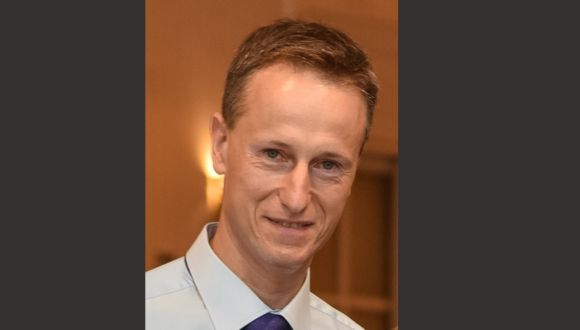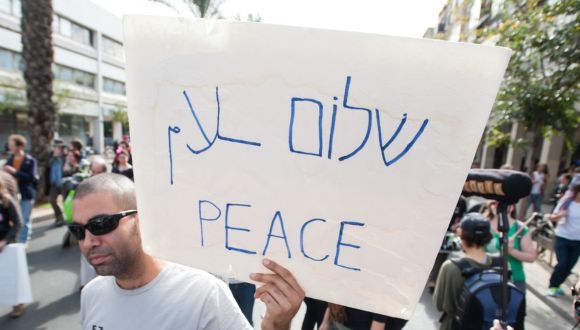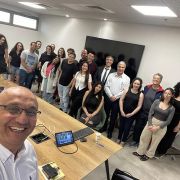One in Three Arab Israelis Prefer External Governance for Gaza Post-War
TAU study reveals shifts in solidarity among Arab Israelis, with one-third advocating for new governance solutions
An extensive study from the Moshe Dayan Center at Tel Aviv University reveals significant trends among Arab Israelis, eight months into the Iron Swords War. Findings indicate that a third of Israel's Arab citizens (34.3%) believe that an external non-Palestinian body should govern life in the Gaza Strip after the war. The study was presented at TAU's Conference – The Future of Israel.
The study was conducted by Dr. Arik Rudnitzky, who explains that with political uncertainty regarding 'the day after the war' and numerous options arising in both local and worldwide discourse, respondents were asked: "Who should assume responsibility for governing life in the Gaza Strip after the war?"
Most respondents (58.5%) feel that life in the Gaza Strip should be run by Palestinians. The highest preference is for local bodies from Gaza (24.4%), the Palestinian Authority is second (19.4%), and Hamas comes last (14.7%). A third of the survey's respondents (34.4%) believe that an external non-Palestinian body should govern life in the Gaza Strip after the war. Here the preferred option is an international force (19.4%), with Israel far behind (8.4%) and finally Arab states (6.5%).
The study was based on a survey including 502 Arab Israeli citizens 18 or over, constituting a representative sample of Israel's adult Arab population. It was initiated by the Konrad Adenauer Program for Jewish-Arab Cooperation supported by the German Konrad-Adenauer-Stiftung at TAU's Moshe Dayan Center for Middle Eastern and African Studies.

Dr. Arik Rudnitzky.
The War’s Surprising Impact on Arab-Jewish Relations
The collected data also indicate that more than half of Israel's Arab citizens feel that the prolonged war has engendered a sense of shared destiny between Arabs and Jews - with a quarter (25.3%) responding that this is true to a great extent. The other half (48.4%) think that the war has not engendered such a feeling, with a third (33.6%) denying that any such feelings exist.
It is interesting to note that the majority of those who believe that the war has generated a sense of shared destiny between Arabs and Jews is preserved through all religions: Christians (61.2%), Druze (62.5%), and Muslims (51.4%).
The researcher: "During the first months after the war broke out there was great tension between Jews and Arabs in Israel. In a similar survey held in November 2023 (shortly after the beginning of the war) most Arab Israelis (69.8%) thought that solidarity between Arabs and Jews had declined as a result of the war. A few months later we found that concerning relations between the two populations, the story of this war is very different from the events of May 2021".
Economically, some degree of normalcy has been restored despite the war. In the November survey, most respondents (64.9%) reported that the war had negatively affected their economic situation. In the present study, most participants (67.8%) report a relatively good economic situation.
Sense of Personal Safety During the Prolonged War
A large majority of the respondents (74%) report a low sense of safety, and many (41.2%) indicate that safety is very low. It should be noted that in the November 2023 survey, which used an identical methodology, even more respondents (81.1%) reported that their sense of safety had declined due to the war. Eight months into the war the change is relatively minor, and most Israeli Arabs continue to feel unsafe.
What is the Most Important Issue for Israel's Arab Sector Today?
Like in previous surveys, findings indicate that the issue of violence and crime is still at the top of the Arab Israeli sector's agenda (60.6%), overriding all other issues: the Palestinian problem (11.3%), regularization of construction in Arab towns (10.1%), economy, employment, and poverty (7.7%), education (6.9%), and the unrecognized Bedouin villages in the Negev (3.4%).
Should an Arab Political Party Join A Coalition Established After the Next Elections?
A clear majority (68.6%) support such a move, including 40.2% in favor of an Arab party joining any coalition, not only a center-left government. Only 14.2% are firmly against any Arab party joining the coalition or even supporting it from the outside (through an obstructing bloc in the Knesset).
Dr. Arik Rudnitzky, Director of the Konrad Adenauer Program: “The study shows that the current war between Israel and Hamas, which is the longest and hardest in the history of the Israeli-Palestinian conflict since 1948, has not altered the political compass of Israel's Arab citizens. The findings provide clear proof for the distinction they make between fluctuations in the broader context of the Israeli-Palestinian conflict and political developments inside Israel, which they are able to influence. Israel's Arab citizens worry about their brethren in Gaza, which is only natural and should be respected. However, it's important to understand that sympathizing with Palestinians in Gaza is not the same as identifying with their political leadership. In fact, a significant part of the survey's respondents believe that local elements in Gaza, and not Hamas, should govern life in the Gaza Strip after the war, and another third say that a non-Palestinian body should do this. In addition, readiness for political collaboration with the Israeli government – expressed not only by supporters of the Ra'am Party but also by those of Hadash-Ta'al who were reluctant until recently – alongside an emphasis on Israeli identity combined with a deep Arab or religious identity – all these prove that Israel's Arab citizens are an integral part of Israeli society, not only in theory but in practice as well”.
“The conclusions emerging from the current survey are important not only to decision-makers in the country but also to every citizen who believes in a true partnership between Jews and Arabs within Israel” - Dr. Rudnitzky.






